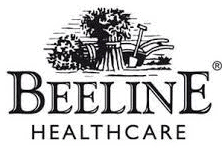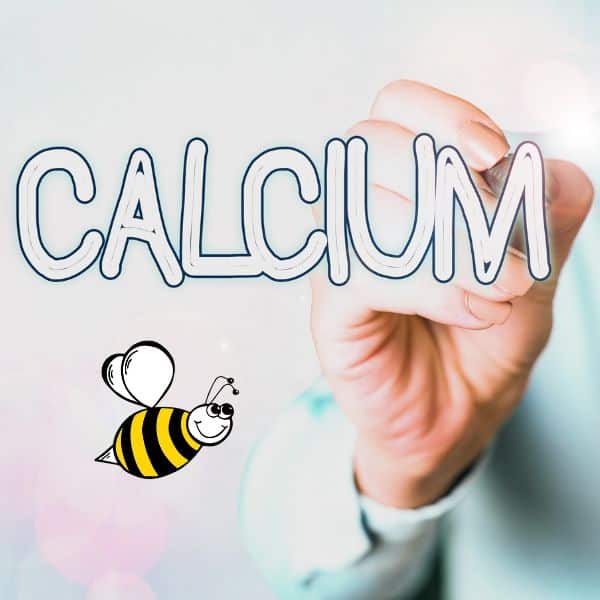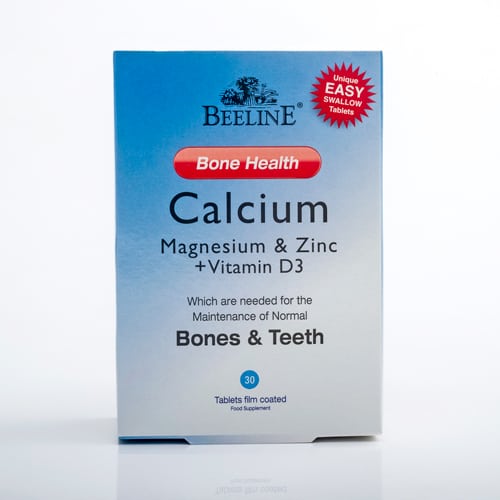Calcium Benefits, Sources and Calcium Deficiency
Calcium is essential for good health and many bodily functions. The benefits of calcium include supporting healthy bones, teeth, muscles, the nervous system, cardiovascular function and preventing osteoporosis. Calcium deficiency is common in Ireland. Sources include food, drinks and dietary supplements.
Why We Need Calcium?
Calcium, what is it? Calcium is a mineral needed for good health and well-being. It is a vital nutrient that we all need to survive, which plays a role in many important bodily functions.
Why we need calcium? We need calcium for healthy bones and teeth. Our muscles need calcium to move. Our nerves need calcium to carry messages between our brain and the rest of the body. It is essential for our bodies to function properly.
Calcium plays a vital role for our bones, teeth, muscles, heart, nervous system, organs and the brain communicating with other areas of the body. It acts as an essential cofactor for many important enzymes in the body to function correctly.
It is the most abundant mineral in the body. Our bones and teeth store 99% of the calcium within our bodies. The rest is stored in our muscles, blood and other tissues.
The Benefits of Calcium
The benefits of calcium and taking calcium supplements include:
1. Strong Healthy Bones
Calcium is essential for bone development and health. It is needed for bone growth for children, maintenance of bones as adults, and preventing bone density as we grow old. In older women, it can lower the risk of fractures.
2. Healthy Strong Teeth
We need calcium to build strong teeth and for good dental health. It supports tooth development in kids. Calcium strengthens the enamel for all ages. Enamel is the thin hard outer layer on each tooth. It protects our teeth from decay, erosion and cavities.
3. Muscle Movement
Our muscles need calcium to support movement and activity. It helps regulate muscle contraction and relaxation. Muscle contractions happen with activity and movement. It is when a muscle tightens, shortens or lengthens. Muscle stimulation causes our bodies to release calcium. This helps the muscle proteins complete the activity.
4. Nervous System Support
Our nervous system controls our bodies. It needs calcium for nerve signals to send messages from our brain to the rest of the body to perform actions.
5. Cardiovascular Heart Health
The cardiovascular system consists of your heart and blood vessels. Calcium plays an important role in our heart and blood vessels functioning properly. It helps the heart muscle beat, and also supports healthy blood clotting.
6. Osteoporosis Prevention and Treatment
Lack of calcium in our bodies caused by low intake of calcium in our diets increases the chance of developing osteoporosis. This is a form of arthritis that causes brittle bones and pain in the joints of knees, hips, spine and hands . As we grow old, we lose bone density. Calcium and Vitamin D are essential nutrients used to help prevent and treat osteoporosis.
7. May Help Reduce the Risks of High Blood Pressure
High blood pressure is a major risk factor for a number of serious health conditions. A number of studies have made links between higher calcium intake and lower blood pressure.
8. Supports Healthy Pregnancy
During pregnancy, high blood pressure can be dangerous. Higher calcium levels may help lower blood pressure for pregnant women.
9. Supports Cognitive Function and Memory
Low levels of calcium can impact cognitive brain function and memory. Hypocalcaemia occurs when there is too little calcium in the blood. The symptoms include memory loss. The condition is treatable.
10. May Help Lower Cholesterol Levels
High blood cholesterol is a serious health concern for heart disease. In 2017, scientists at the University of Alberta and McGill University reported a link between calcium and cholesterol. Studies indicate calcium may help lower cholesterol levels.
11. May Help Support Colon Health
Calcium may support good colon health. While further research is required, a Harvard School of Public Health trial study of 135,000 people suggested that calcium supplements may help reduce their risk of colon cancer.

Sources of Calcium
Our bodies do not produce calcium, so we must consume it in our diet. The sources of calcium in the diet are food, drinks and supplements.
1. Calcium Rich Foods
Calcium is found in a range of dairy, leafy green vegetables, Winter squash, fruits, seeds and fortified cereals. Good food sources of calcium include:
- Cheese
- Yogurt
- Spinach
- Broccoli
- Kale
- Collard greens
- Bok choy
- Turnip
- Almonds
- Butternut squash
- Sardines
- Chia seeds
- Sesame seeds
- Whey protein
- Rhubarb
- Tofu
- Special K
2. Drinks
Dairy beverages and fortified fruit juices contain calcium. Good drinks sources of calcium include:
- Milk
- Almond milk
- Soy milk
- Orange juice
- Pineapple juice
- Fortified fruit juices
3. Calcium Supplements
Dietary supplements are a source of calcium from calcium carbonate. Beeline Healthcare calcium supplements ensure that you get the recommended daily dose.
Calcium and Vitamin D3 are essential nutrients for the prevention and treatment of osteoporosis. Many people take calcium and vitamin D3 supplements to help reduce the risk of osteoporosis.
Beeline Calcium Supplements
Beeline Calcium, Magnesium, Zinc and Vitamin D3 Tablets is a unique bone health formula. The calcium tablets provide the recommended daily amount of the key nutrients to keep your bones, joints and teeth strong and healthy.
Beeline Vitamin D3, Calcium and Magnesium Effervescent Tablets support a healthy immune system, strong bones and teeth.
Calcium Deficiency in Ireland
Calcium deficiency is quite common in Ireland.
Inadequate intake is prevalent among adults over 65 years old.
The National Adult Nutrition Survey highlighted that 16% of women do not consume enough calcium.
The National Children’s Food by the Irish Universities Nutrition Alliance (IUNA) in 2020 highlighted that 37% of Irish children have inadequate intakes of calcium.
Calcium Deficiency Symptoms
Calcium deficiency can occur due to low levels of calcium in the body. It can be caused by not consuming sufficient amounts in your diet, or due to conditions that reduce the body’s ability to absorb calcium.
The symptoms of calcium deficiency and related diseases can include:
- Fatigue
- Brittle bones
- Muscle cramps and spasms
- Tooth decay
- Gum Disease
- Premenstrual Syndrome (PMS)
- Irregular heartbeat
- Dry skin
- Insomnia
- Seizures
Low levels of calcium can lead to diseases including rickets, hypocalcaemia, osteopenia and osteoporosis.
Calcium and Osteoporosis
Why is calcium important for osteoporosis? Calcium is essential for bone health.
Osteoporosis is a bone disease that causes bones to weaken and become brittle. It can develop due to a decrease in bone mineral density and bone mass. Low levels of calcium in our bodies increases the chance of developing osteoporosis.
During the normal aging process, calcium absorption and levels naturally decline. For this reason, many people take calcium supplements to prevent osteoporosis.
Calcium and Vitamin D
Our bodies need vitamin D to absorb calcium. Therefore, it is also important to ensure that you get enough vitamin D.
How Much Calcium Do I Need?
According to the HSE, adults aged 19 to 64 years old need 700 mg of calcium per day.
Calcium supplements are recommended when sufficient levels are not consumed in the diet.
How much calcium should I take? It is always recommended to talk to your doctor about what dose they recommend for specific conditions.
Are There Risks of Taking too Much Calcium?
The negative effects of taking too much calcium are generally gastrointestinal symptoms. These include stomach pain and diarrhoea.
Therefore, it is recommended to only take supplements from a reputable brand such as Beeline Healthcare, Ireland’s Number 1 Vitamins and Minerals brand.
Questions Calcium
- How much calcium should you take a day?
The HSE recommends that adults aged 19 to 64 years old need 700 mg of calcium per day. It is recommended to talk to your doctor about what dose they recommend for specific conditions and for your personal circumstances.
- What are the benefits of calcium?The benefits of calcium include:
- Strong Healthy Bones
- Strong Healthy Teeth.
- Aids Muscle Movement.
- Supports the Nervous System carrys.
- Cardiovascular Heart Health.
- Osteoporosis Prevention and Treatment.
- May Help Reduce the Risks of High Blood Pressure.
- Supports Healthy Pregnancy.
- Supports Cognitive Function and Memory.
- May Help Lower Cholesterol Levels.
- May Help Support Colon Health.
- What are the sources of calcium?We must consume calcium in our diet, as our bodies do not naturally produce calcium. The sources of calcium are:
- Food (cheese, yogurt, spinach, broccoli, kale).
- Drinks (milk, orange juice).
- Dietary supplements.


